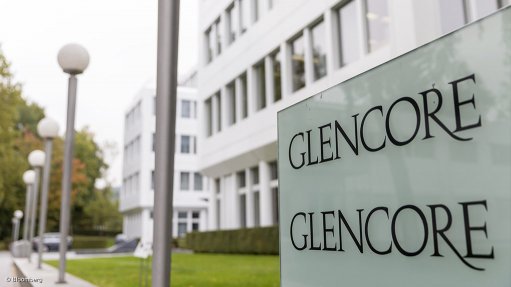
Global major diversified natural resource group Glencore has a solid outlook for the next few years, because, among others things, of its diversified portfolio, its conservative financial policy and likely rising prices for the main metals and coal that it produces. But clouds on the horizon exist in the forms of major legal investigations into its activities and transactions, being undertaken by authorities in the US, Brazil and India. And there is also the risk that trade wars and possible recession could drive commodity prices down.
These opinions are found in Fitch Solutions Macro Research’s report 'Global Company Strategy – Glencore: Challenges Ahead From Weak Copper Prices', published on Thursday. (Fitch Solutions Macro Research should not be confused with Fitch Ratings; the two entities are affiliated but separate.)
“Alongside years of capital discipline aimed at reducing debt, the firm was able to amass a diverse portfolio of copper, zinc, lead, cobalt, nickel and coal producing mines that will benefit the firm for years to come,” states the report. “The firm will target metals used in electric vehicle production, including copper, cobalt and nickel, as well as maintaining a strong coal mining portfolio, despite headwinds from environmentally conscious investors.”
Indeed, the group’s coal portfolio could, as more and more countries move towards low-carbon economies, alienate environmentally-concerned investors. Moreover, around the world, resource nationalism and increasing social opposition to mining projects are potential threats to new projects and could become problems for existing operations.
In addition, since the start of 2018, Glencore has become the target of investigations by agencies in major jurisdictions. These investigations are continuing. They started early last year with the US Department of Justice examining deals done by the group in the Democratic Republic of the Congo, Nigeria and Venezuela.
Then, last December, the company became entangled in Brazil’s massive “Lava Jato” corruption investigation and is, along with Vitol and Trafigura, being probed by Federal Prosecutors for bribing officials at Brazil’s predominantly State-owned oil and gas company, Petrobras. This was followed, in March this year, by Glencore Agriculture’s office in India being raided by officers of the Competition Commission of India – the company is suspected of fixing the prices of staple agricultural products in 2015 and 2016. In addition, a Canadian investigation into Glencore subsidiary Katanga Mining led to that company paying a “settlement” of $22-million and seeing its CEO depart, in December.
“[The] continued scrutiny of the firm’s business practices will continue to muddy the company’s reputation and could lead to potential fines,” cautions the report. “[This] string of legal woes … suggests corporate governance issues and is likely to affect the company’s reputation and investors’ sentiment.”
Nevertheless, the group has major strengths. “A business model that is vertically integrated allows Glencore to benefit from control over the commodities value chain. Dealing with more than 7 000 suppliers and customers around the world provides the group valuable insight into the evolving demand and supply dynamics of a notoriously cyclical industry,” points out the report. “[The] diversified nature of operations, across the soft and hard commodities, lowers the volatility of Glencore’s portfolio, as a downturn in one commodity could be offset with an uptick in another.”